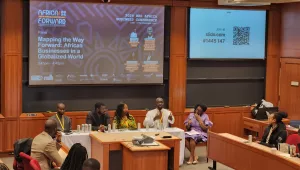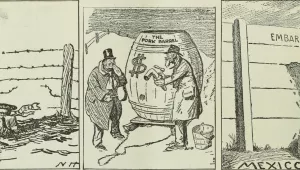The recent post-election violence in Kenya was characterized by the Western press as a result of unresolved ethnic tensions. But beneath this superficial view lie more profound constitutional tensions arising from interactions between democratic politics and economy. The constitutional orders put in place in much of Africa following independence were largely a continuation of the colonial economic order. The associated governance structures are being swept aside by globalization, demographic change, and demands for democratic liberties. Much of Africa has in effect come to the end of the first republics, and some of the political crises on the continent are a result of the pressure to create new constitutional orders guided by the creation of economic opportunities and less by the classical demand for basic human rights. Countries that have previously failed to make this constitutional transition have degenerated into civil wars. Kenya's post-election violence was a sign of the changing times and the country will need to craft a new constitutional order that expands economic opportunities by expanding the coverage of physical infrastructure, investing in expanding the skill base of the population and boosting youth employment, stimulating new businesses, deepening regional integration, and promoting exports. These objectives should help to guide future discussions on the country's constitutional reform. Failure to recognize the connections between economic imperative and politics will diminish the country's prospects for peace and stability like it has done in other African countries.
Please join us! Light luncheon provided. Everyone is welcome, but admittance will be on a first come–first served basis.
Professor Juma will also be speaking at Harvard Law School on Tuesday, September 23, 2008, in the HALA Speakers Series on "The Legal Challenges of Economic Transformation in Africa", 12 PM – 1:30 PM in Hauser 103. Lunch will be provided.




